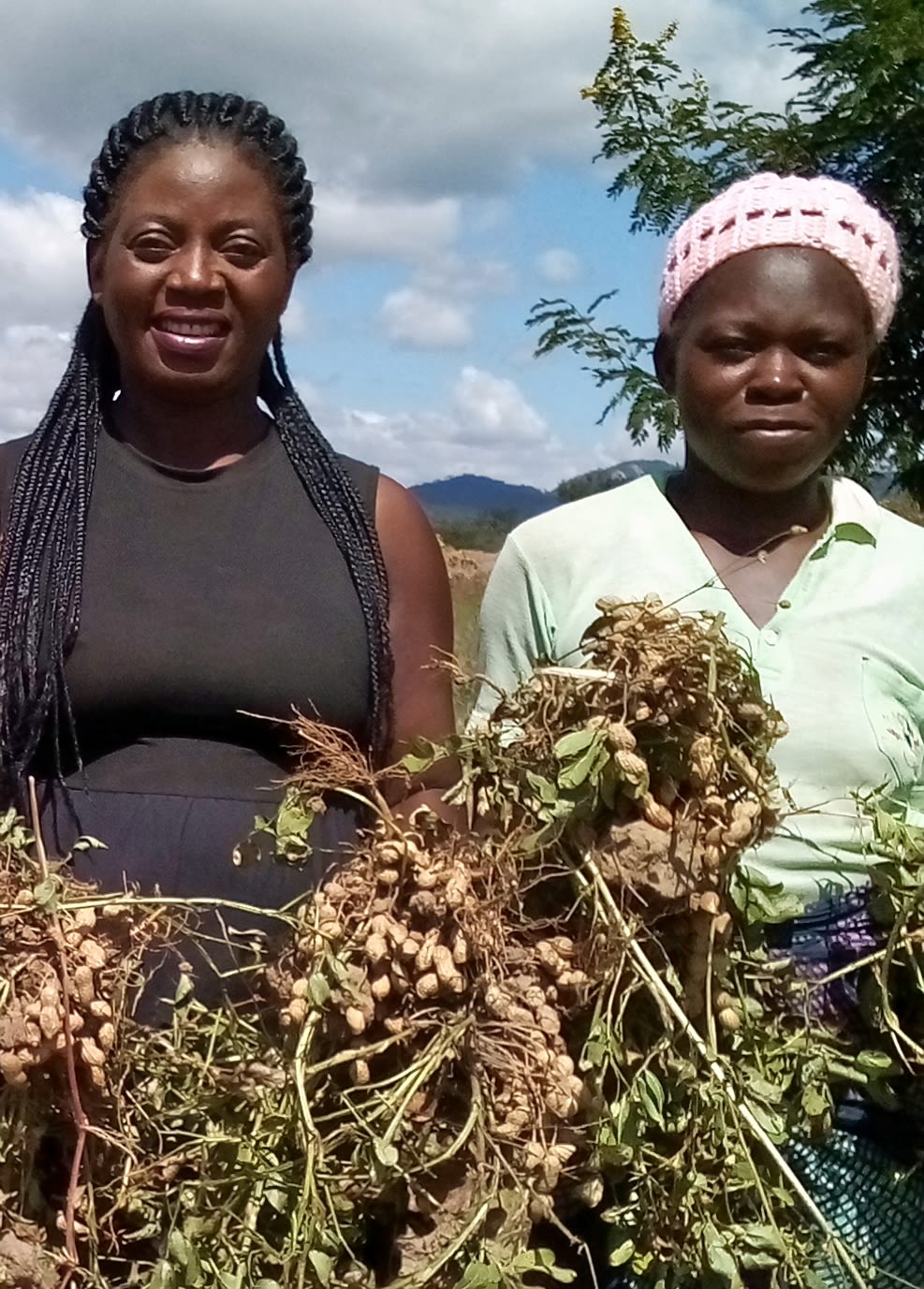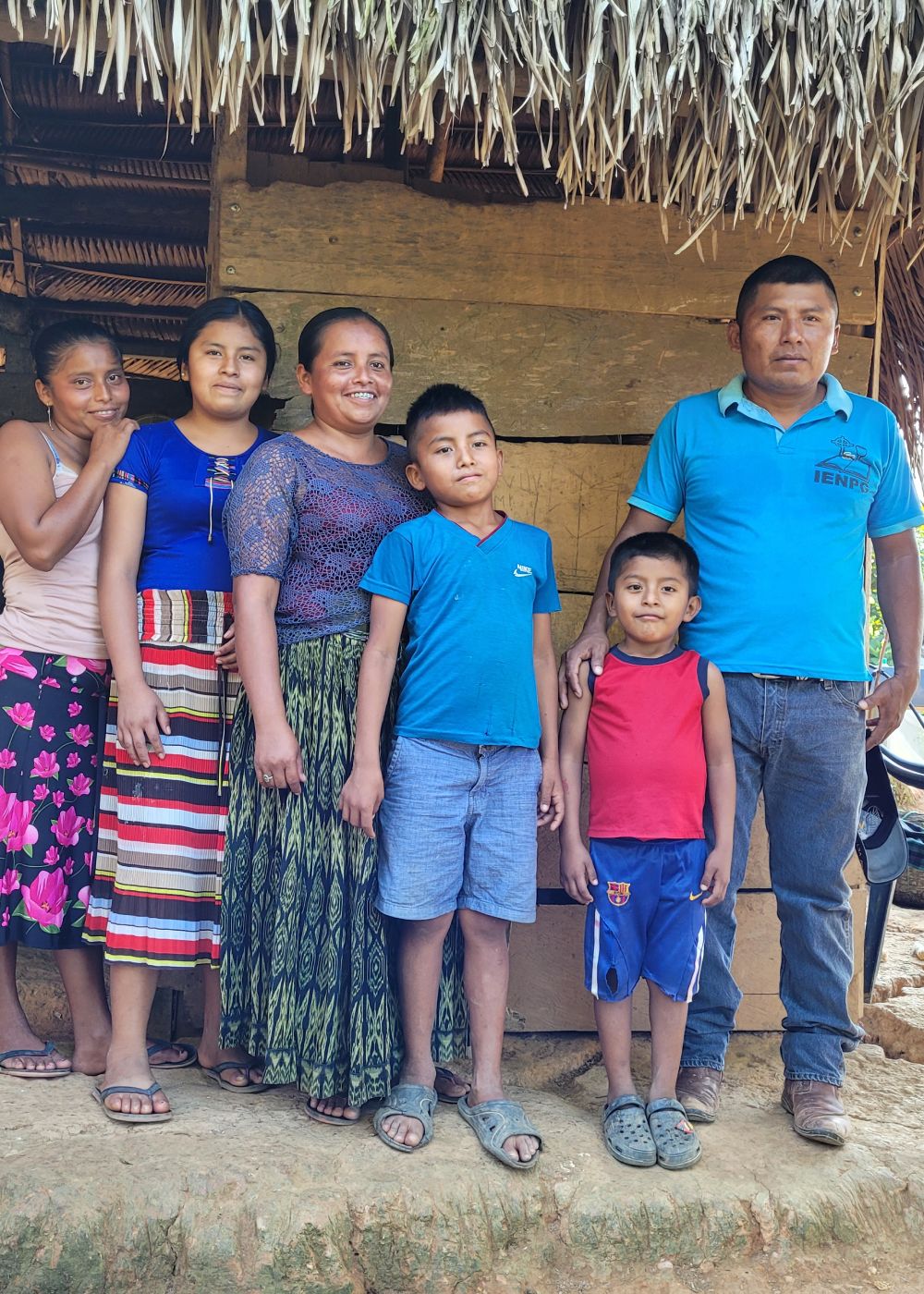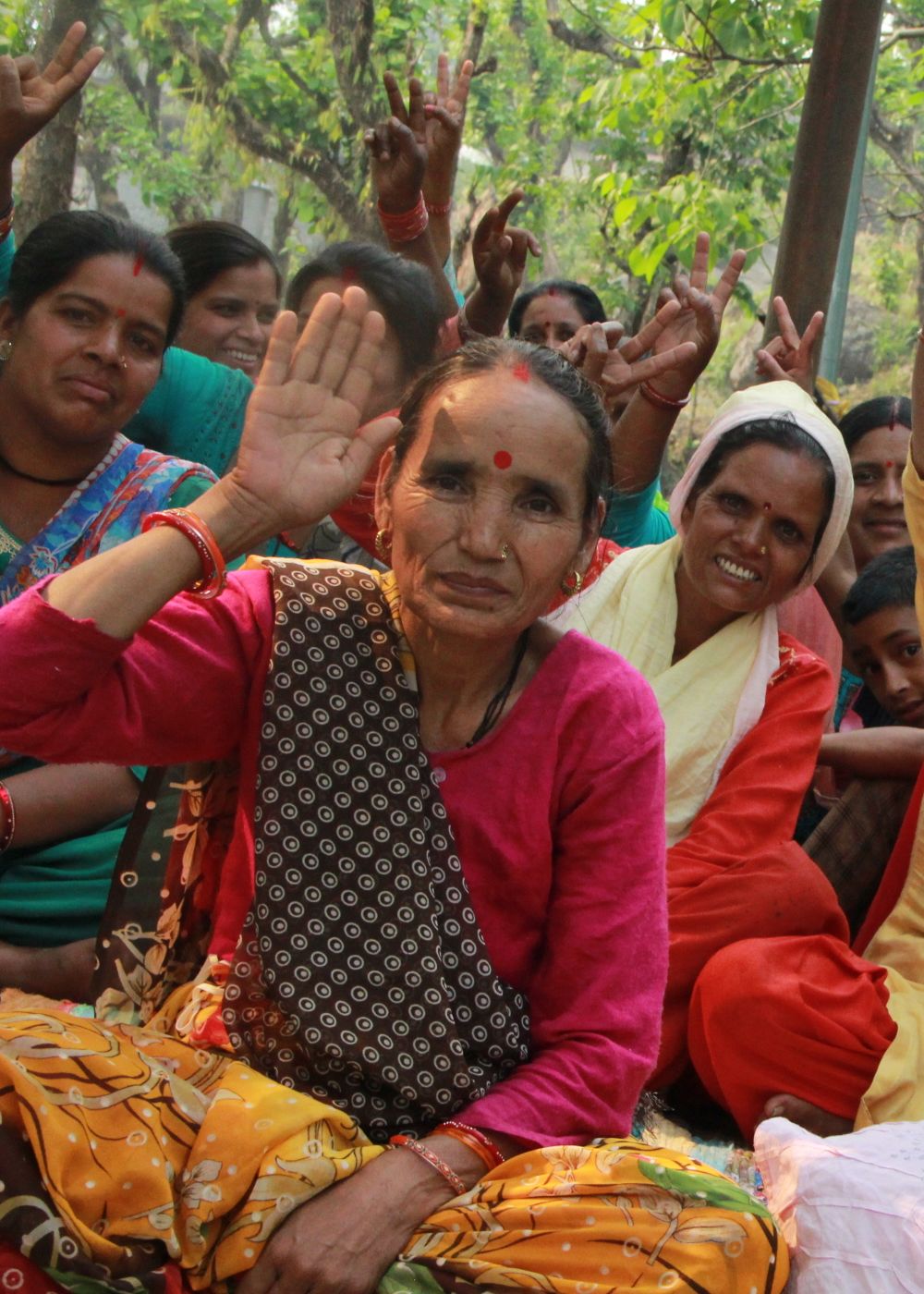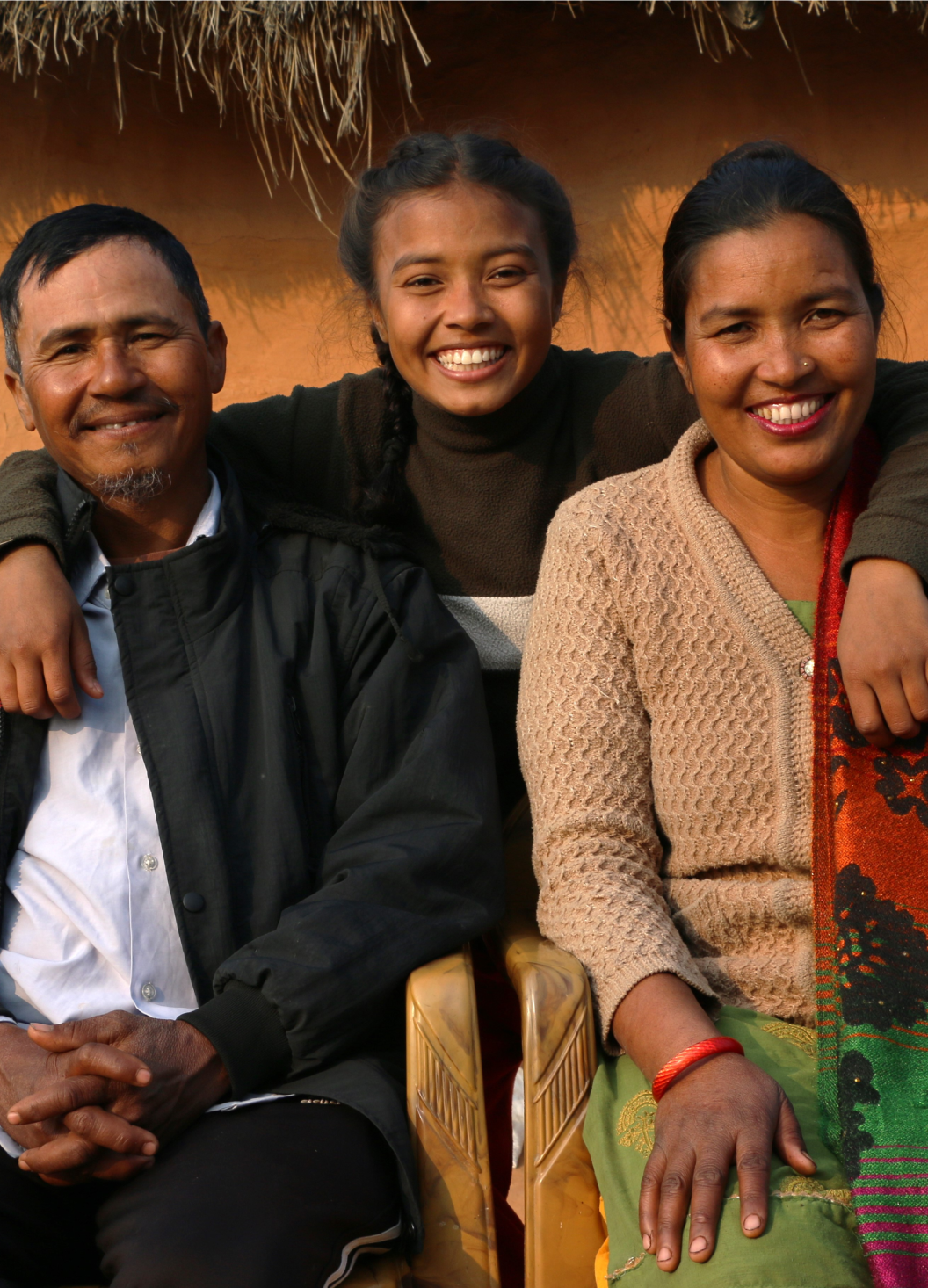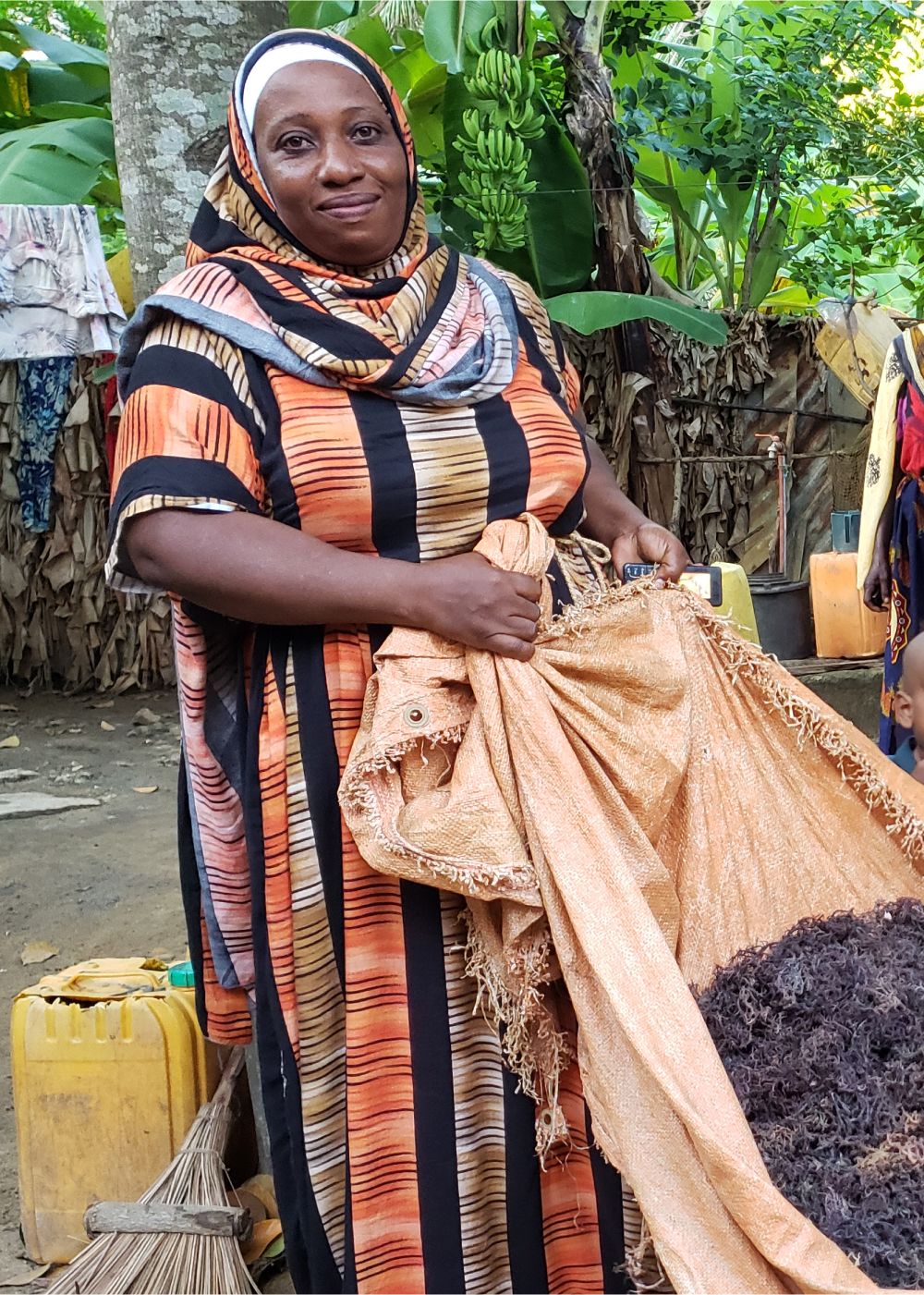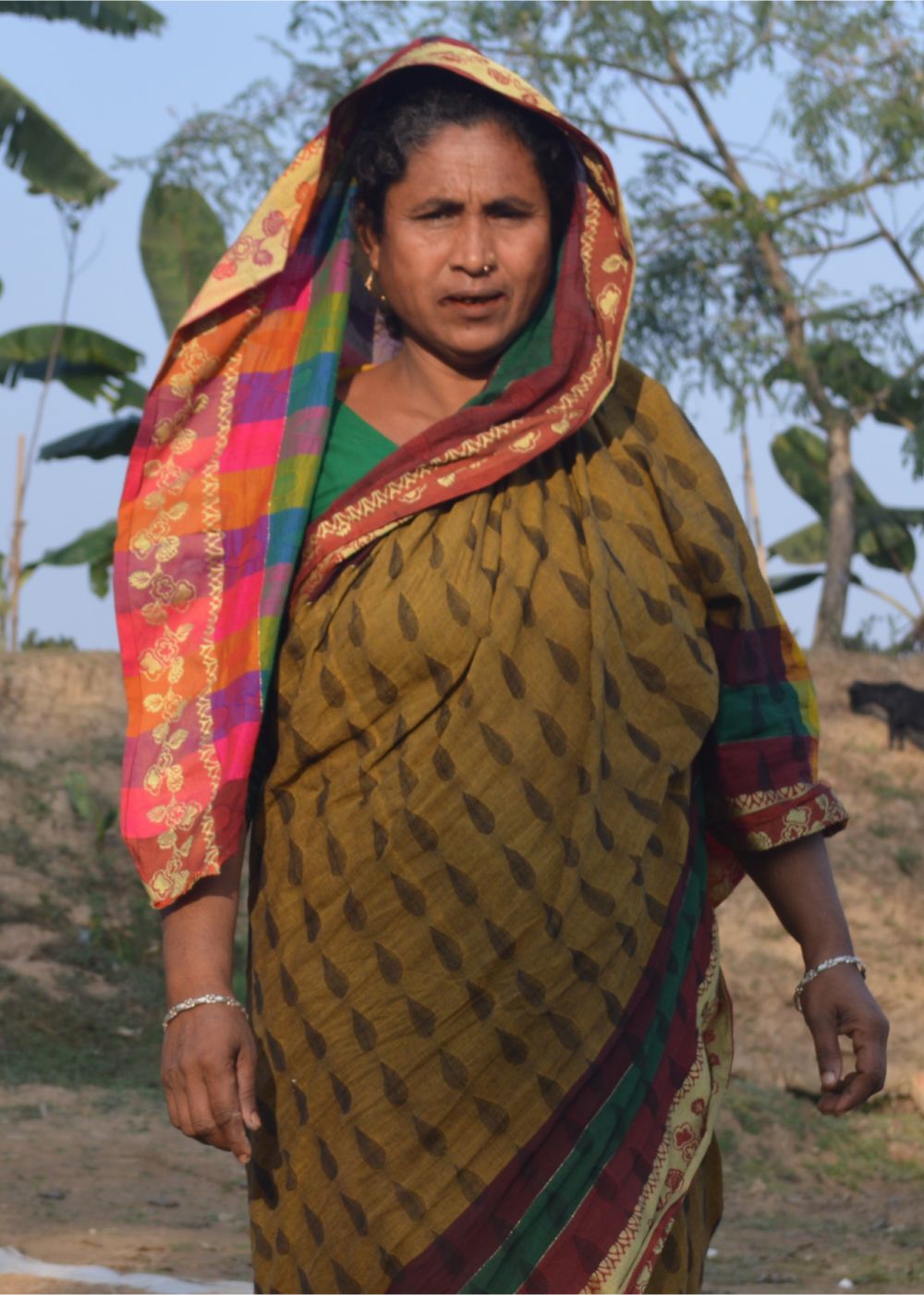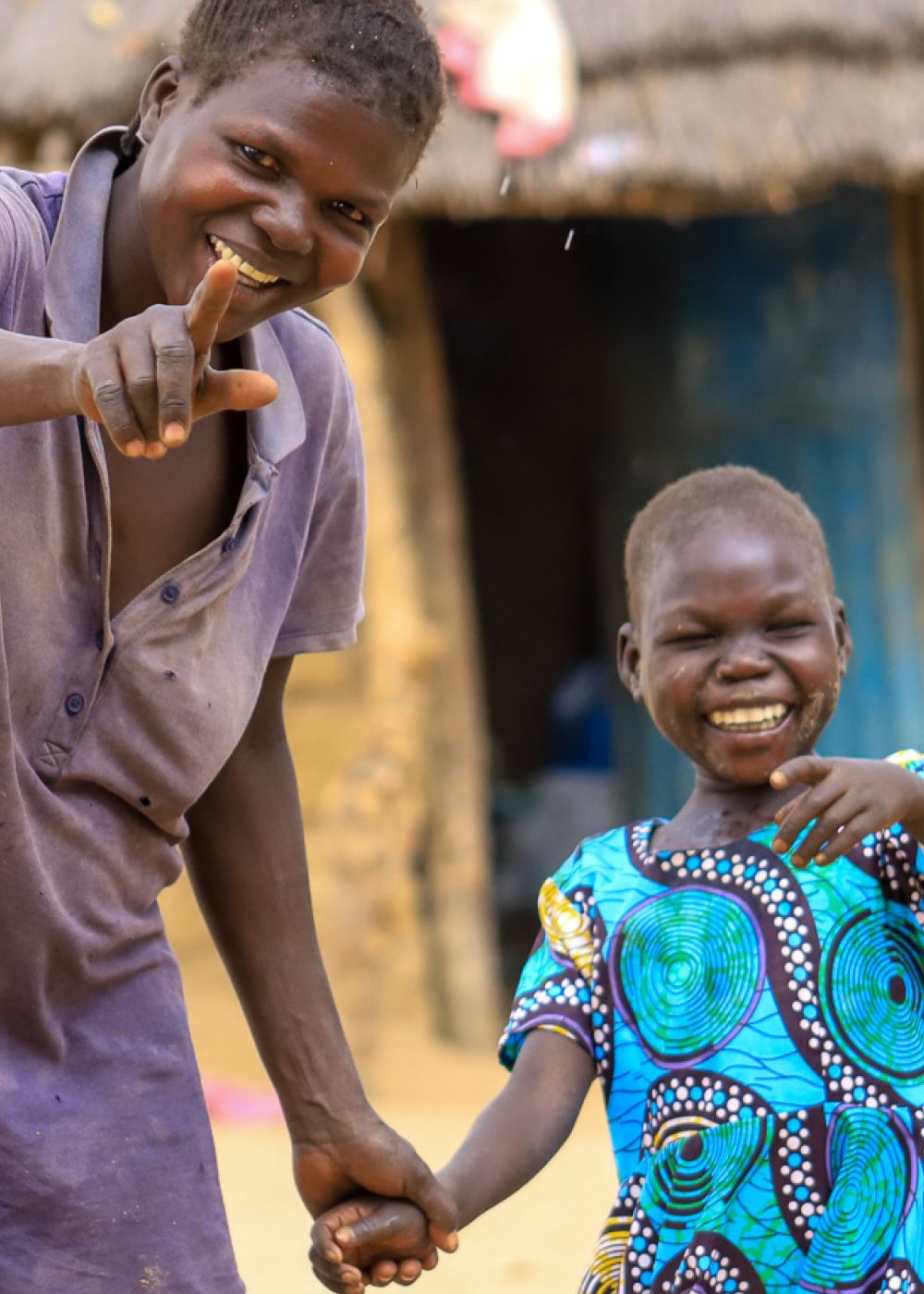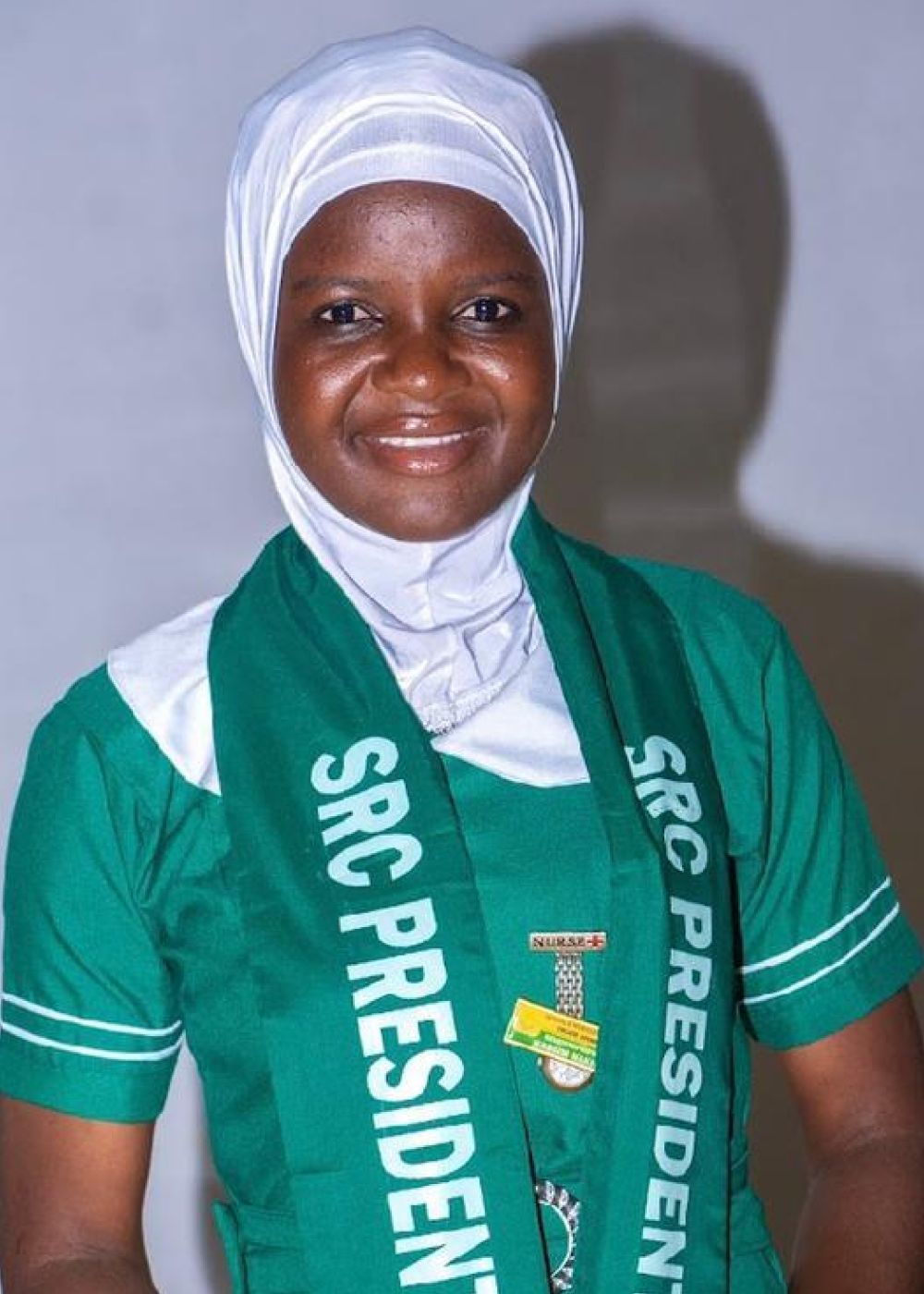Action for Change
Your latest update from ActionAid UK
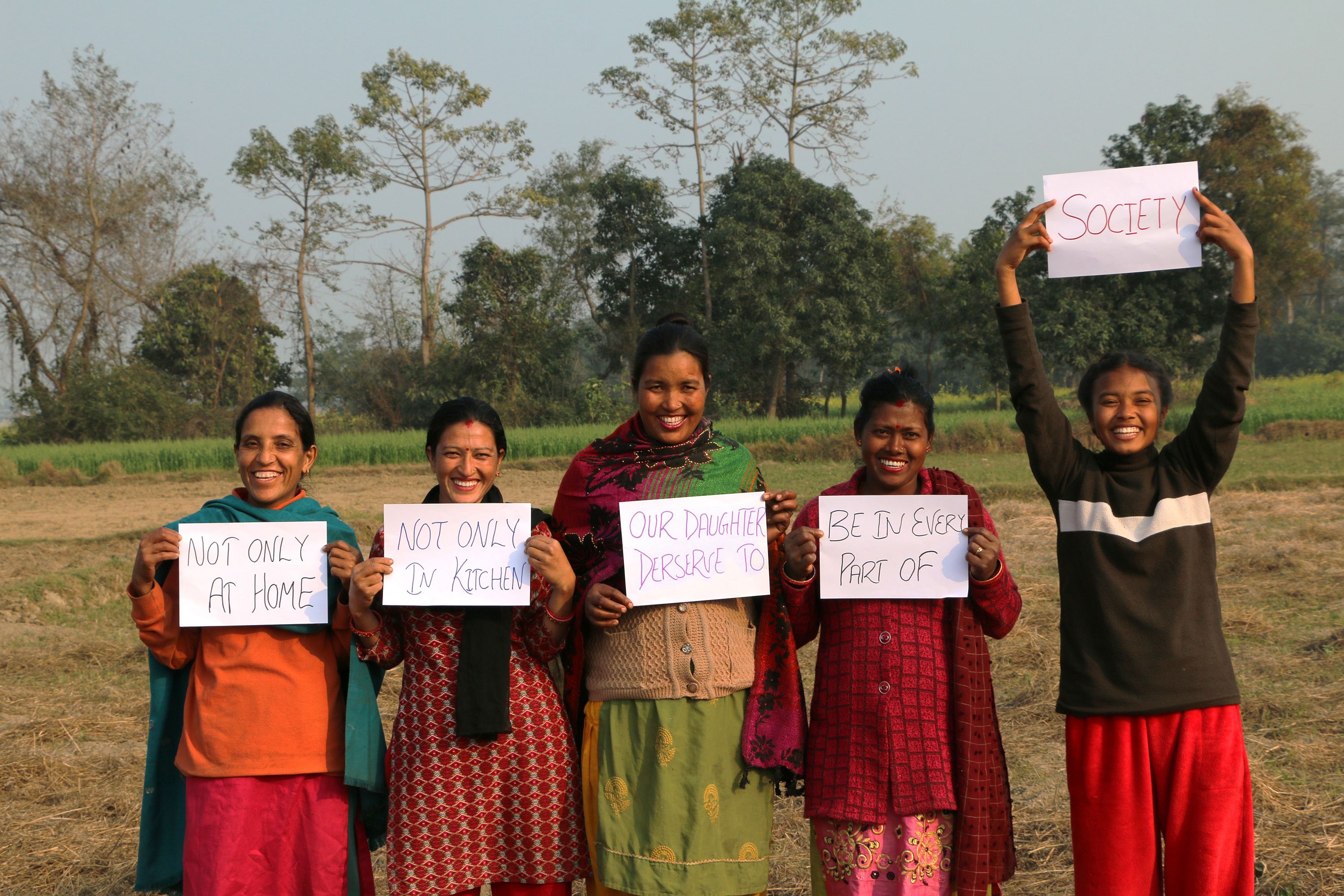
Not only at home, not only in the kitchen, our daughters deserve to be in every part of society!"
These are the strong beliefs of a women’s group in Nepal, which includes Bandhana and her mum Sita (pictured above, right and centre respectively, whose story you can read below). They have joined together with other women and girls in their community to stand up against discrimination and demand equality.
As a supporter of ActionAid you are a partner in the change women and girls are leading around the world.
In this special update, you can read unique stories from some of the most inspiring women, each one demonstrating how women and girls are leading change.
Malawi
Meet Tamara, a mother of four grown-up daughters. A few years ago she lost her home and the land she lived and worked on when her husband died. Her husband’s family took the land as they said she couldn’t inherit it because she had no sons.
I used to depend on my husband for all essential needs and his death negatively affected me and my daughters. But because I was a member of the women’s forum, I had learned about women’s rights and I knew I had the right to inherit my husband’s property even though I didn’t have any sons".
Tamara is a member of the Chikulamayembe Women’s Forum, who ActionAid works in partnership with. Through activities organised for the forum members, Tamara knew her legal rights to keep the land. With the support of the forum, she got her land back and she and her daughters’ lives flourished thanks to their hard work on the land.
“Through the women’s forum I received training in climate resilient and sustainable agriculture, including how to make manure from farm waste. I also received financial support to increase the amount of crops I could grow. I went from a subsistence farmer to a commercial farmer.
“Each year, my harvests of soya, maize and groundnuts have increased along with my income. I have been able to improve my family’s living conditions, we now always have enough nutritious food to eat, I have built a brick house and I have supported all my daughters to complete their education."
Tamara’s success in becoming a female commercial farmer has led to her becoming a role model for other women, as well as being elected to various committees and councils, in some instances being the first woman to hold that post. “This year, I am planning to buy a motorcycle to help me travel across my district more easily to carry out my council duties,” Tamara added.
Her leadership roles include being an executive member of the Chikulamayembe Women’s Forum, vice-chairperson of the Village Development Committee, and vice-chairperson of the Area Development Committee.
Tamara has shown that by working together, women can achieve positive change in their lives, bringing wider success for their families and communities.
Tamara (left) has shown that women working together truly changes lives. Jean Chirwa/ActionAid
Tamara (left) has shown that women working together truly changes lives. Jean Chirwa/ActionAid
Reina (centre) with her family. Through her leadership roles, she advocates for women's voices to be heard and for better conditions and services for women. Emilia Chitay/ActionAid
Reina (centre) with her family. Through her leadership roles, she advocates for women's voices to be heard and for better conditions and services for women. Emilia Chitay/ActionAid
Guatemala
I tell women that we must participate and never be afraid because we have rights."
Guatemala has long been governed by men. Since the start of the country’s presidential elections in 1847, there has not been a single woman in office. Only 20% of the seats in Congress are occupied by women, and the number of female mayors across the country is less than 10. But change is happening, starting in the community.
In towns and villages across Guatemala, women are increasingly participating in decision-making spaces and making their voices heard. For several years ActionAid has been working in Izabal, running empowerment sessions to help women know their rights and providing training on contributing to decision-making.
“Those sessions taught us that women have rights, and that we can participate,” says Reina. “We can teach people to respect us through having a voice and guide other women about our right to participate.
“Right now, in the Community Development Council there are three of us women but in other spaces there are no women. Sometimes it is because women don’t want to participate, or they are afraid of their husbands. My husband understands and I share with him and my children what I have learnt.
“Sometimes we face discrimination. It depends on the men in the authorities at the time, some of them let us have space, some of them don’t. But we are participating in local councils like the women’s committee, health committee and environment committee.
“As women, we have the skills to have responsibilities in our community. If we don’t fight, we will never improve our situation.”
India
My husband and I owned a small farm but our earnings were barely sufficient to cover our household expenses, let alone a quality education for our daughter. But joining the women’s rights group in my village that was started with the help of ActionAid, changed the course of my life."
Over 200 women have joined at least one of the 10 village-based women’s rights groups in Bharatpur, India. The groups have been established to provide women with a space to learn about their rights. They also provide opportunity to raise awareness about welfare schemes that exist to support women in all aspects of their lives. Through the groups, women are supported to access these schemes, and receive training and support to improve their livelihoods. The groups are also a platform for women to come together in solidarity and take collective action against any abuse of their rights.
Bharati explains how the decision to join her local women’s rights group changed her own and her family’s lives. “As a member of the women’s rights group, I learned about various government schemes aimed at supporting women’s livelihoods. The one scheme that caught my attention was financial assistance for women to start dairy farming. I saw an opportunity to enhance our family income in a venture aligned with my agricultural background.
“With the guidance and support of the group, I applied for funding to purchase cows. The application process was smooth and I was delighted to be able to buy two cows. With training, I am now successfully selling milk from my cows. This income means we can now meet our household expenses comfortably. But more importantly to me, I can actively support my daughter’s education, a distant dream before.”
Bharati continues, “Emboldened by my newfound economic stability, I became an active participant in the women’s rights group. I work alongside other members of the group to raise awareness amongst our community on the rights of women and the laws that are in place to safeguard women in areas such as livelihoods and healthcare, and to protect them against abuse and exploitation.
“Working alongside ActionAid has made all this possible and provided me with not only the means to earn my own income, but has ignited a passion for community service and women’s empowerment within me.”
Bharati (front) says "I take immense pride and joy in the positive impact we are making in the lives of the women around us." Chandramohan/ActionAid
Bharati (front) says "I take immense pride and joy in the positive impact we are making in the lives of the women around us." Chandramohan/ActionAid
Bandhana with her father, Janak and her mother Sita, who both fully support Bandhana in her studies and her involvement with the girls group. Angela Shrestha/ActionAid
Bandhana with her father, Janak and her mother Sita, who both fully support Bandhana in her studies and her involvement with the girls group. Angela Shrestha/ActionAid
Nepal
My journey with ActionAid began when I joined the Jyoti Adolescent Girls’ Group."
15-year old Bandhana is the president of the Adolescent Girls’ Group in her community, which has 41 members.
Bandhana explains to us how she feels the group meetings have transformed her as a person. “Through various trainings and workshops, I’ve learned about important topics like gender-based violence, substance abuse and child marriage.
“Before ActionAid’s training, I didn’t fully grasp the severity of the issues we talked about. But these sessions have empowered me and the rest of the group to take action and raise awareness of them in our community.
“Since joining the Jyoti Adolescent Girls’ Group, I’ve found my voice. Now, I use it to advocate for community development and to fight against injustice. I know there’s more growth ahead and I’m excited for what’s to come.”
Just as Bandhana explained, all too often girls’ voices are discounted or unheard - their safety, education, health and wellbeing under threat.
By partnering with groups like Bandhana’s, the voices of inspirational women and girls are being heard across Nepal. As they stand up against injustice and demand equality – they send ripples of positive change that extend far beyond their own lives.
There are many young women like Bandhana around the world who are standing up for their rights and leading change. ActionAid’s child sponsorship is supporting this work.
Find out more about child sponsorship
From answering all your questions on how sponsorship works, to providing tips on how to write to your sponsored child, we have a wealth of resources and information to support you on your journey.
Tanzania
The only source of income available to women in my community was processing fish, it was poorly paid, and left many of us reliant upon our husbands for financial support."
Fatuma is a member of a Women’s Rights group in her community, and she represented her group at a meeting with women from 23 other groups, government departments and Sauti ya Wanawake Mafir - a project partner of ActionAid’s.
Together, these women representatives identified other ways in which women could earn an income and explained the support they wanted from government to help with this.
As a result of this meeting, an action plan was agreed and training workshops in seaweed farming and coconut and fish processing were organised. Over 400 women participated in this training, learning how to process seaweed and coconut into products such as soap, juices and biscuits.
The training became the catalyst for the women to increase their seaweed production. By forming cooperative groups, the women reinvested their profits into their seaweed farms, increasing production. Their successes attracted buyers from outside of Mafia, bringing a higher price for their produce.
“The move to increase our seaweed production through cooperatives has helped boost our incomes and reduced costs. I am proud that I now earn enough to pay my children’s school fees, save money, and contribute to household bills,” concluded Fatima.
Women like Fatima are leading huge successes in seaweed farming, to such an extent that Mafia is now the “capital of seaweed farming” in Tanzania. Thank you for partnering the plans and projects of women like Fatima.
Mafia has over 400 seaweed farmers, 70% of whom are women. These women, like Fatuma, are building successful businesses, reducing poverty, and improving family health and wellbeing. Amri Lutera/ActionAid
Mafia has over 400 seaweed farmers, 70% of whom are women. These women, like Fatuma, are building successful businesses, reducing poverty, and improving family health and wellbeing. Amri Lutera/ActionAid
Shorufa, a trailblazing community leader in Bangladesh. Kamrul Hasan/ActionAid
Shorufa, a trailblazing community leader in Bangladesh. Kamrul Hasan/ActionAid
Bangladesh
Shorufa, a resident of Biswambarpur, Bangladesh, joined the ActionAid-supported Reflection Action Circle twelve years ago. The group provides women with training in various areas, including livestock rearing, farming skills, and women’s rights. Shorufa’s involvement transformed her life. She cultivated vegetables, raised chickens, ducks, and cows, and accessed loans from the group to start income generating activities.
As her family’s financial situation improved, Shorufa extended her support to other families in the community. In addition to serving as a volunteer midwife, Shorufa is also a strong advocate for childbirth registration and fighting child marriage. Her leadership abilities led to her election as a member of the local government, where she remains committed to empowering marginalised women and promoting awareness of critical issues like family planning.
I am working for the women and children of my community,” explained Shorufa. “Women’s leadership is much needed in our community - who better understands the issues women face. I will make sure people take advantage of the opportunities offered to them through groups like the Reflection Action Circle so that our community can move forward.”
ActionAid recognises that women’s active involvement in governance is not only essential but transformative for sustainable community development. Shorufa’s inspiring journey exemplifies how women play a crucial role in advocating for their community’s needs at government level, amplifying women’s voices, and driving lasting positive change.
There are women like Shorufa all around the world who are standing up for the needs of their community and leading change. ActionAid’s child sponsorship is supporting this work.
Uganda
I am happy that I have been able to claim my land from my father-in-law. I can once again grow crops and provide food for my five children, improving their health, wellbeing, and education."
In Uganda, there is an increasing denial of women’s access, control and ownership of land due to the deeply entrenched customary and inheritance laws favouring men.
“When my husband died, I was left with the sole responsibility of taking care of my children. We lived as farmers depending on my husband’s land for our source of livelihood.” Christine, a widow and mum who lives in Katakwi, Uganda said her only source of income came to an abrupt end when her father-in-law denied Christine and her children access to the land. This was a devastating blow.
“With no food and lacking a source of livelihood and income, I moved from one home to another doing casual work in people’s gardens for survival.
“After reporting my case to the Community Development Officer of my Sub County, I was referred to an ActionAid supported Women Protection Centre (WPC) in Katakwi. I was counselled at the centre. My father-in-law was asked to attend a mediation meeting to settle the land grabbing matter.
“At the meeting, he learnt he was wrong to grab our land. He promised and committed himself to returning my late husband’s land back to me – which he did immediately.”
Christine’s situation is one faced by many women across rural Uganda – denying women access to vital land. Not only do we support Women Protection Centres that provide vital advice, support and resources to women; patriarchal systems are also challenged via radio shows and community meetings to help end the discrimination women face. Christine is among 75 women to have benefitted from mediation sessions to secure land for a prosperous future.
Around the world, there are women like Christine, standing strong and challenging the deeply entrenched patriarchal systems that hold women back. ActionAid’s child sponsorship is supporting this work.
Christine (with her daughter Caroline) is among 75 women who have regained the ownership of land previously taken from them due to gender-discrimination. Byaruhanga Frank/ActionAid
Christine (with her daughter Caroline) is among 75 women who have regained the ownership of land previously taken from them due to gender-discrimination. Byaruhanga Frank/ActionAid
“My capabilities are limitless” said, Nakidu, an aspiring nurse and leader. Rumanatu Jibrila/ActionAid
“My capabilities are limitless” said, Nakidu, an aspiring nurse and leader. Rumanatu Jibrila/ActionAid
Ghana
I am the second girl to have ever contested for the position of President of the Student Representative Council, at the nursing and midwifery training college where I am studying.”
The Nakidu we see today could not be further from the Nakidu who joined the Young Female Platform in 2016.
Like so many young girls, Nakidu found it challenging to ask questions in class, which affected her results. But through the training and support she received at platform meetings, her confidence grew and this changed everything, as she explains: “Being a member of the Young Female Platform (YFP) is where I gained the confidence to speak in public without fear, to define and defend my rights as well as advocate for others who cannot speak.
“Through various training workshops that focused on developing our self-esteem and leadership skills, I have learnt that my capabilities as a girl are limitless.”
The Young Female Platform is one of the many groups belonging to ActionAid’s extensive worldwide network of girls’ clubs and safe spaces. Together with partner organisation Norsaac, 24 senior high schools in northern areas of Ghana now have a YFP, providing around 1,000 girls with the opportunity to connect with their peers and mentors to gain confidence and learn new life skills.
“I would not be who I am today were it not for the Young Female Platform,” says Nakidu. “Thanks to the YFP, my friends can see, through me, that women and girls can be bold, assertive, and know how to claim their rights.”
Since the very first YFP was established in 2009, over 50,000 girls have participated in workshops and training programmes on leadership, reproductive health, human rights and activism.
There are women like Nakidu all around the world who are standing up for the needs of their community and leading change. ActionAid’s child sponsorship is supporting this work
These amazing women and girls, and many more like them around the world are amplifying their voices and removing the barriers they face, not only changing their lives, but the lives of their families and communities too.
Thank you for your solidarity.
Sponsor a child
It only takes a few minutes to become a child sponsor, but you could help a child change their life forever.

